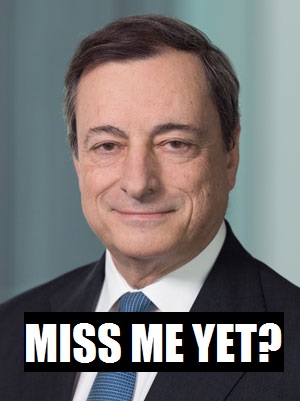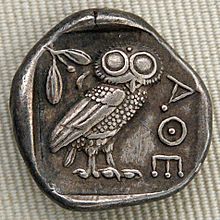Listen to this episode on Spotify, Apple or YouTube!
Transcript:
“Dear President Lagarde,
I wish you a happy and healthy 2022!
And maybe also a career change?
You see, I follow you on Twitter, and I have the impression that this central banking stuff isn’t really your thing.
For example, you tweeted about your friends 13 times in 2021.
You tweeted about women issues 19 times.
Climate change? No fewer than 25 times.
Inflation?
Just 11 times.
I hate to bring this up on the first (working) day of 2022, but the primary objective of the ECB is still price stability.
With inflation close to 5%, it seems that talking and tweeting about the ECB’s secondary objectives is more important than delivering stable prices.
Within a year’s time, your economists have doubled their projections for inflation in 2022.
So you’ll understand that people don’t believe you when you say that inflation will go down this year.
If you do choose to stay ECB President in 2022, I wish you a firm hand.
On New Year’s day, the 20th birthday of the euro, you called the euro a “beacon of stability and solidity around the world”.
To keep it that way, the ECB will need your strong leadership.
Kindly yours,
Jan Musschoot
Hello and welcome to a special episode of the Finrestra podcast.
I wish you a happy new year! Stick around till the end, because I’m giving away 250 euros.
New year, new month, so here’s a quick recap of the European financial news of December.
Santander has to pay almost 68 million euros to Andrea Orcel. Santander had offered the former UBS banker the role of CEO, but withdrew its offer.
In other legal news, a French court has reduced a 4.5 billion euro fine for UBS to 1.8 billion euro. The Swiss bank was found guilty of money laundering.
Dutch green bank Triodos will set up a multilateral trading facility for its shareholders (technically certificate holders). Since the beginning of 2020, shareholders cannot sell their certificates. It is expected that trading will resume at a price that is 30 or 40 percent lower than before the pandemic.
There was also consolidation and divestment news.
BNP Paribas has agreed to sell its American subsidiary Bank of the West for 16.3 billion dollars. Listen to episode 9 of the Finrestra podcast for our take on this transaction.
ING announced that it is leaving the French retail market.
Cooperative bank Crelan acquires AXA Bank Belgium. The deal had already been announced in 2019, but was waiting for approval by the ECB. The new bank will be the fifth largest in Belgium.
Regular listeners know that I usually do an in-depth analysis of one topic after the news. However, today I want to tell you a bit about Finrestra and my plans for 2022.
I started this podcast because there are not many podcasts focused on European finance. My original goal was to do a weekly interview. But I quickly found out that this is easier said than done. Weekly episodes require more time than I have. And it hasn’t been easy to find people who want to come on the show. So I want to thank my first guests Uuree Batsaikhan, Koen Vingerhoets and Rik Coeckelbergs again!
For 2022, there will be two episodes per months. I hope that from February onwards, I will be able to interview a number of very interesting guests. Stay tuned!
If you’re listening to this podcast on Apple or Spotify, you may not know that there is also a Finrestra YouTube channel, where I post short videos about financial topics. For example, I have a series of bank profiles, including of Santander, Triodos, BNP Paribas and ING, which were all mentioned in the news recap. I also want to create more videos with short stories about European finance.
But neither the podcast nor YouTube pays my bills, and this is where you can help me. Don’t worry, I’m not asking for money, I’m giving you a chance to win money!
Finrestra stands for Financial Research and Training. So far, we have mainly worked for Belgian based clients. But I want to expand my activities to the rest of Europe. If you share my YouTube video with my two courses for 2022 on LinkedIn and tag a friend before 25 January, you can win 250 euro. I’ll put the link in the description.
This has been another episode of the Finrestra podcast. You can find my on twitter @janmusschoot. You can mail me at jan dot musschoot at finrestra dot com.
Thanks for listening and I hope you have a great 2022!”


